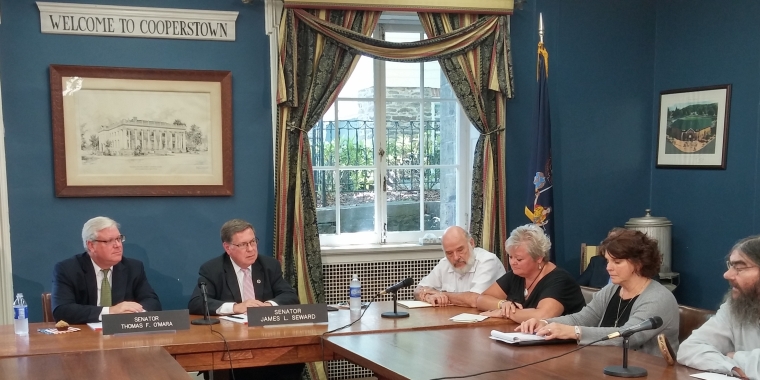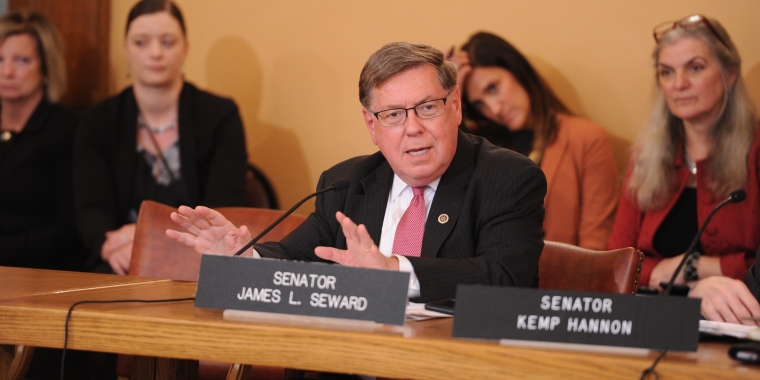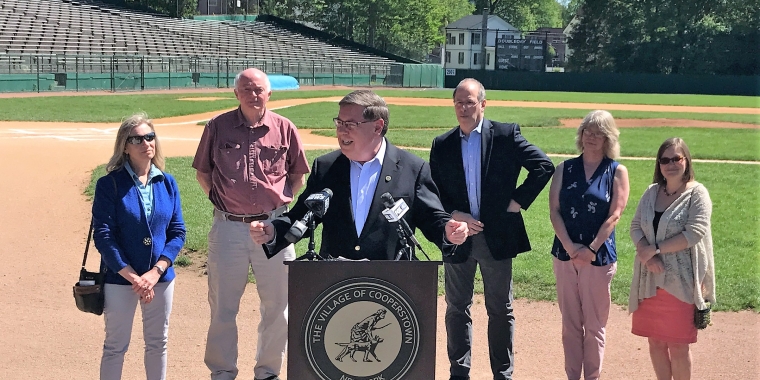
Rural Public Transportation Issues Focus Of Senate Forum
James L. Seward
July 22, 2015
-
ISSUE:
- Transportation

COOPERSTOWN, 07/22/15 —New York State Senators James L. Seward (R/C/I) and Tom O’Mara (R/C/I-Big Flats), whose upstate, rural legislative districts are being hurt by state-level changes underway in the management of Non-Emergency Medical Transportation, held a “New York Medicaid NEMT Roundtable Discussion” today in Cooperstown.
The senators heard testimony from local leaders and transportation management officials from Central and Western New York, the Mohawk Valley, the Hudson Valley, the Southern Tier and Finger Lakes regions, and the North Country on how state reforms are negatively impacting public transportation in the rural communities they serve.
A full video replay of the hearing is AVAILABLE HERE.
In a joint statement, O’Mara and Seward said: “The state’s ongoing Medicaid redesign effort in Non-Emergency Medical Transportation represents a significant shift and major changes in public transportation services in many areas, but especially in the rural, upstate regions we represent. The future of public transportation is being put at risk by Albany’s attempt at a statewide, one-size-fits-all approach to these local systems. It’s a developing crisis for many rural residents. So we’re trying to bring more widespread attention to the changes underway, fully assess the consequences for our counties, and do what we can to ensure that the impact on rural public transportation at least receives a full and a fair hearing.”
According to the senators, since 2013 the state’s comprehensive Medicaid redesign strategy has included a shift in the administration and management of Medicaid Non-Emergency Medical Transportation (NEMT) from localities to the state. The change has been viewed as a cost-cutting move by state officials, but many local officials from across the Upstate region have raised concerns about the plan and, especially, the impact the state takeover is having on rural communities and populations, including the disabled and the elderly, as well as the rural workforce.
The state Department of Health (DOH) administers NEMT and has transitioned the management of transportation systems that were previously administered locally to a state-level transportation management system operated out of Albany. But local officials, mobility managers, transportation providers and community organizations in Upstate rural regions say that the new, one-size-fits-all approach, which might be workable in suburban and urban areas downstate, isn’t proving cost-effective or efficient in their rural communities.
Consequently, a number of these officials and providers discussed the shortcomings of the new system, including the elimination of existing transportation routes, the future of locally based cost-efficiency initiatives and the overall disruption of services to persons with disabilities, seniors and other local residents who have long depended on these rural public transportation systems.
A similar roundtable was held in Albany in early 2013 when the reforms were just getting underway.
Additionally, the legislators are seeking the enactment of legislation the Senate unanimously approved earlier this year (S.5794/A.8202), which O’Mara sponsors and Seward strongly supports, that would reconstitute the state’s “Interagency Coordinating Committee on Rural Public Transportation” in order to establish an active, collaborative forum for local representatives and state agency officials to fully examine the impact of state-level actions on public transportation in rural regions. The committee would be charged with taking a look at and issuing an annual report to the governor and the legislature on a range of issue areas including:
- Existing rural transportation systems including data on ridership, revenue and other challenges for each system;
- A county-by-county analysis of costs savings, modes of transportation, reimbursement schedules, and public transportation utilization rates resulting from the state’s ongoing Medicaid redesign initiative; and
- The overall impact of reductions in state transit operating assistance on rural public transportation.
The legislation was given unanimous senate approval on June 16th but no action was taken by the state assembly, where it’s sponsored by Assemblyman Anthony Brindisi (D-Utica).
-30-
Share this Article or Press Release
Newsroom
Go to NewsroomSeward Bill to Boost Rural Economy Approved by Senate
June 11, 2018

Seward Hits One Out of the Park
May 21, 2018


